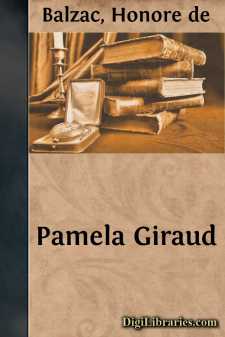Categories
- Antiques & Collectibles 13
- Architecture 36
- Art 48
- Bibles 22
- Biography & Autobiography 815
- Body, Mind & Spirit 144
- Business & Economics 28
- Children's Books 18
- Children's Fiction 14
- Computers 4
- Cooking 94
- Crafts & Hobbies 4
- Drama 346
- Education 58
- Family & Relationships 59
- Fiction 11833
- Games 19
- Gardening 17
- Health & Fitness 34
- History 1378
- House & Home 1
- Humor 147
- Juvenile Fiction 1873
- Juvenile Nonfiction 202
- Language Arts & Disciplines 89
- Law 16
- Literary Collections 686
- Literary Criticism 179
- Mathematics 13
- Medical 41
- Music 40
- Nature 179
- Non-Classifiable 1768
- Performing Arts 7
- Periodicals 1453
- Philosophy 65
- Photography 2
- Poetry 896
- Political Science 203
- Psychology 44
- Reference 154
- Religion 515
- Science 126
- Self-Help 85
- Social Science 82
- Sports & Recreation 34
- Study Aids 3
- Technology & Engineering 59
- Transportation 23
- Travel 463
- True Crime 29
Sort by:
by:
Honore de Balzac
CHAPTER I. PROLOGUE In the year 1800, toward the close of October, a foreigner, accompanied by a woman and a little girl, was standing for a long time in front of the palace of the Tuileries, near the ruins of a house recently pulled down, at the point where in our day the wing begins which was intended to unite the chateau of Catherine de Medici with the Louvre of the Valois. The man stood there with...
more...
by:
Honore de Balzac
CHAPTER I. TWO CHILDHOODS To what genius fed on tears shall we some day owe that most touching of all elegies,—the tale of tortures borne silently by souls whose tender roots find stony ground in the domestic soil, whose earliest buds are torn apart by rancorous hands, whose flowers are touched by frost at the moment of their blossoming? What poet will sing the sorrows of the child whose lips must...
more...
by:
Honore de Balzac
THE COMMISSION IN LUNACY In 1828, at about one o'clock one morning, two persons came out of a large house in the Rue du Faubourg Saint-Honore, near the Elysee-Bourbon. One was the famous doctor, Horace Bianchon; the other was one of the most elegant men in Paris, the Baron de Rastignac; they were friends of long standing. Each had sent away his carriage, and no cab was to be seen in the street;...
more...
by:
Honore de Balzac
HONORINE If the French have as great an aversion for traveling as the English have a propensity for it, both English and French have perhaps sufficient reasons. Something better than England is everywhere to be found; whereas it is excessively difficult to find the charms of France outside France. Other countries can show admirable scenery, and they frequently offer greater comfort than that of France,...
more...
by:
Honore de Balzac
INTRODUCTION The Histoire des Treize consists—or rather is built up—of three stories: Ferragus or the Rue Soly, La Duchesse de Langeais or Ne touchez-paz a la hache, and La Fille aux Yeux d'Or. To tell the truth, there is more power than taste throughout the Histoire des Treize, and perhaps not very much less unreality than power. Balzac is very much better than Eugene Sue, though Eugene Sue...
more...
by:
Honore de Balzac
INTRODUCTION I have sometimes wondered whether it was accident or intention which made Balzac so frequently combine early and late work in the same volume. The question is certainly insoluble, and perhaps not worth solving, but it presents itself once more in the present instance. L'Illustre Gaudissart is a story of 1832, the very heyday of Balzac's creative period, when even his pen could...
more...
by:
Honore de Balzac
AT THE SIGN OF THE CAT AND RACKET Half-way down the Rue Saint-Denis, almost at the corner of the Rue du Petit-Lion, there stood formerly one of those delightful houses which enable historians to reconstruct old Paris by analogy. The threatening walls of this tumbledown abode seemed to have been decorated with hieroglyphics. For what other name could the passer-by give to the Xs and Vs which the...
more...
by:
Honore de Balzac
CHAPTER I. THE CHALET At the beginning of October, 1829, Monsieur Simon Babylas Latournelle, notary, was walking up from Havre to Ingouville, arm in arm with his son and accompanied by his wife, at whose side the head clerk of the lawyer's office, a little hunchback named Jean Butscha, trotted along like a page. When these four personages (two of whom came the same way every evening) reached the...
more...
by:
Honore de Balzac
CHAPTER I. A BEDROOM OF THE SIXTEENTH CENTURY On a winter's night, about two in the morning, the Comtesse Jeanne d'Herouville felt such violent pains that in spite of her inexperience, she was conscious of an approaching confinement; and the instinct which makes us hope for ease in a change of posture induced her to sit up in her bed, either to study the nature of these new sufferings, or to...
more...
by:
Honore de Balzac
ACT I SCENE FIRST (Setting is an attic and workshop of an artificial flower-maker. It ispoorly lighted by means of a candle placed on the work-table. Theceiling slopes abruptly at the back allowing space to conceal a man.On the right is a door, on the left a fireplace. Pamela is discoveredat work, and Joseph Binet is seated near her.) Pamela, Joseph Binet and later Jules Rousseau. PamelaMonsieur Joseph...
more...











